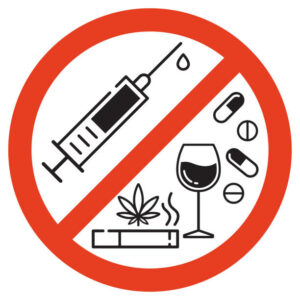
In today’s fast-paced and competitive business world, companies are constantly seeking ways to enhance productivity, employee well-being, and overall workplace harmony. One critical aspect of this effort is effectively managing alcohol and drug use in the workplace. HR plays a pivotal role in developing and implementing policies, programmes, and strategies to address these issues. In this blog post, we will explore the challenges HR faces and the best practices for managing alcohol and drug use in the workplace.
Understanding the Challenge
Managing alcohol and drug use in the workplace can be a complex task for HR professionals. They must balance employees’ rights and privacy with the need to maintain a safe, productive, and legally compliant workplace. Here are some of the challenges they often encounter:
- Legal considerations: HR must stay informed about federal, state, and local laws that govern drug and alcohol use in the workplace. These laws can vary significantly, making compliance a complex task.
- Privacy concerns: HR must respect employees’ privacy rights while also ensuring a safe and drug-free workplace. Striking the right balance can be challenging.
- Substance abuse as a health issue: HR professionals need to recognize that substance abuse is a health issue and approach it with sensitivity and a focus on helping employees rather than punitive measures.
 Best Practices for HR
Best Practices for HR
To effectively manage alcohol and drug use in the workplace, HR professionals can implement the following best practices:
- Develop a clear policy: HR should work with legal experts to create a comprehensive substance abuse policy that outlines expectations, consequences, and support mechanisms for employees. The policy should be communicated clearly to all staff and readily accessible.
- Educate employees: HR can organise regular training sessions to educate employees about the company’s drug and alcohol policies, the risks of substance abuse, and available resources for help.
- Offer employee assistance programmes (EAPs): EAPs can provide employees with confidential access to counselling and support services to address substance abuse issues. HR should promote EAPs and ensure employees are aware of their availability.
- Conduct regular training: Training for supervisors and managers is essential to help them identify signs of substance abuse, approach the issue sensitively, and follow the company’s policies and procedures.
- Provide support for employees seeking help: HR should encourage and support employees seeking help for substance abuse issues, emphasising a non-punitive approach that focuses on rehabilitation and recovery.

- Ensure confidentiality: HR must maintain strict confidentiality when dealing with substance abuse issues, respecting the privacy rights of affected employees.
- Establish testing protocols: If appropriate and legally permitted, HR can establish drug and alcohol testing protocols, ensuring fairness and adherence to legal requirements.
- Consistent enforcement: HR should apply company policies consistently to all employees, regardless of their position within the organisation.
Conclusion
Managing alcohol and drug use in the workplace is a critical responsibility for HR professionals. By developing clear policies, providing education and support, and maintaining sensitivity and confidentiality, HR can create a workplace environment that promotes safety, productivity, and the well-being of all employees. Ultimately, effective management of substance abuse issues not only benefits the organisation but also provides valuable support to individuals struggling with addiction, helping them on their path to recovery.

Recent Comments